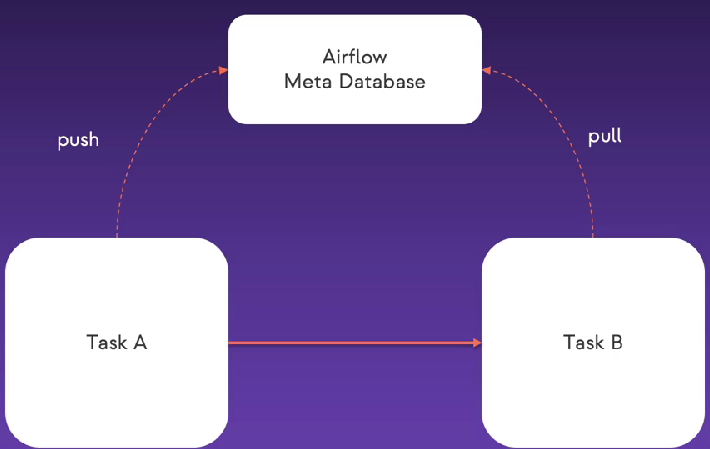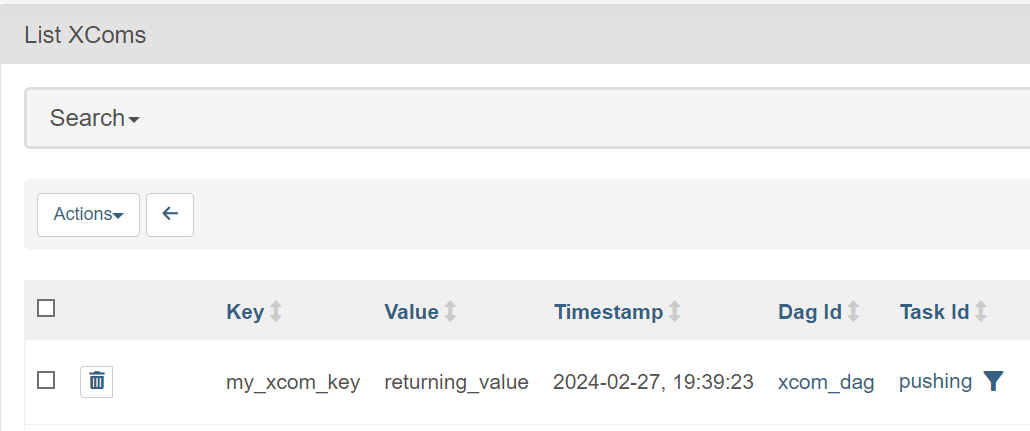What is it?
XCOM stands for cross-communication. They are used in Apache Airflow to exchange data between tasks with the objective of sharing the same state between different tasks. They are similar to Airflow Variables, but much more flexible.
How it works?
XCOMs lives in the Airflow’s Meta Database, being pushed from the first task, stored in the Meta Database, and then pulled for the second task. They aren’t made to hold large amounts of data, so no passing DataFrames using them. Also, all values should be JSON serializable.

Explicitly declaring XCOMs
Passing data around is not hard, but it needs to comply with the Airflow standard for XCOMs. You need to call a push method for sending the XCOM data from a task, specifying its parameters, and them a pull method for retrieving the same data, using the parameters you just defined.
The XCOM is unique dependent on the XCOM key ID, DAG ID, task ID, and logical date.
from airflow import DAG
from airflow.operators.python import PythonOperator
from datetime import datetime
def return_task(**context):
my_value = "returning_value"
context["task_instance"].xcom_push(
key="my_xcom_key", value=my_value) # Pushing XCOM
def dependent_task(**context):
my_value = context["task_instance"].xcom_pull(
task_ids="pushing_task", key="my_xcom_key")
print(f"I got the value: {my_value}!")
with DAG(
dag_id="xcom_dag",
start_date=datetime(2024, 2, 27),
schedule_interval="@once"
) as dag:
pushing_task = PythonOperator(
task_id="pushing", python_callable=return_task)
pulling_task = PythonOperator(
task_id="pulling", python_callable=dependent_task)
pushing_task >> pulling_taskThis DAG would result in the following XCOM:

Implicitly XCOMs with TaskFlow API
To pass data around tasks, one could use return statements and dependency management. If you create a task that is expecting a parameter, and another returning the same parameter, it’s possible to implement this behavior inside the tasks dependencies.
One could easily build it using the TaskFlow API:
from airflow.decorators import task, dag
from datetime import datetime
@dag(
"xcom_dag", start_date=datetime(2024, 2, 25), schedule_interval=None, catchup=False
)
def xcom_dag():
@task
def return_task():
return "retuning_value"
@task
def dependent_task(value):
print(f"I got the value: {value}!")
dependent_task(return_task())And because the XCOM is implicit, it creates a default key value in the Web Server’s XCOMs tab:

*However, while it’s possible to pass data to another Operator that isn’t a PythonOperator, combining the traditional approach and TaskFlow may prove counter-productive.